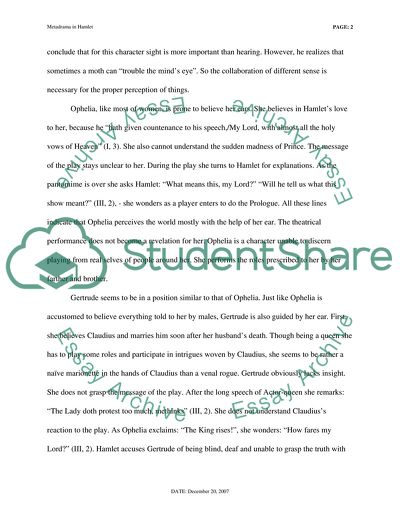Metadrama in Hamlet Essay Example | Topics and Well Written Essays - 1750 words. https://studentshare.org/literature/1711045-metadrama-in-hamlet
Metadrama in Hamlet Essay Example | Topics and Well Written Essays - 1750 Words. https://studentshare.org/literature/1711045-metadrama-in-hamlet.


